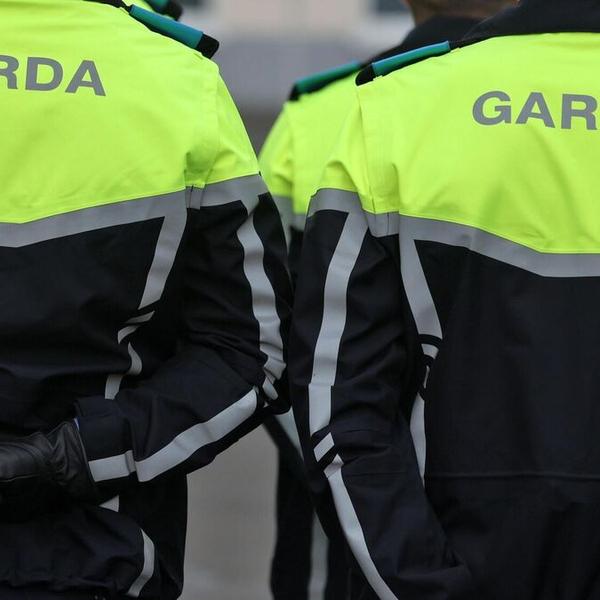
Sinn Féin Want More Guards - But That Won’t Stop Crime.
9 May 2025
Fine Gael have been doing it for decades - calling for more Guards as the solution to crime and anti-social behaviour. It’s an easy vote getter but on a deeper level it helps to disguise the underlying economic drivers of crime.
Sinn Féin have decided to borrow Fine Gael’s clothes and have started flyering working class estates with a leafet that calls for more Guards to be trained up, more Garda visibility and for more community Guards.
I remember community Guards pushing old women off of water meters back during the mass movement of 2014. Many people who were involved in the water movement in areas like Coolock will remember the batons and pepper spray used against working class people protesting an unjust charge.
But let’s look at the key question - does more cops mean less crime? The simple answer is no.
After the attack on US tourist Stephen Termini the media went into overdrive with headlines about “gangs of feral youth” and claimed there was a breakdown of law and order in inner city Dublin.
But despite all that sound and fury from right wing Dublin 4 media hacks, a cold look at the crime statistics showed no rise at all and what was often reported as a rise was actually a bounce back to pre-lockdown figures after the pandemic had lowered crime figures.
Between July 28th and August 3rd 2023 alone more than 500 arrests were made and more than 680 searches were carried out in Dublin’s inner city. Many locations where homeless people had slept, like doorways, were fenced off and the homeless moved further out of town. This “zero tolerance” approach continued for the following months despite experienced voices crying out that that kind of approach just doesn’t solve anti-social behaviour.
The “broken window” zero tolerence theory was laid out by thinkers like James Q. Wilson in 1982 and had its origins in ultra conservative US thinking from the 1960s. It was a conscious attempt to divert blame away from capitalism and onto the poorest communities and it just didn’t work.
When crime fell in New York the theory was praised by conservatives - but crime fell everywhere in the USA as the economic situation improved for communities as the US exited the 1980s. One study on heavier policing in the US reported:
“We immediately saw a sharp increase in complaints of police misconduct. Starting in 1993, what you’re going to see is a tremendous amount of disorder that erupts as a result of broken windows policing, with complaints skyrocketing, with settlements of police misconduct cases skyrocketing, and of course with incidents, brutal incidents, all of a sudden happening at a faster and faster clip.”
Declan Keenan of “JustAsk” after-school programmes in Dublin’s inner city, told The Journal that during the Covid pandemic, support for disadvantaged youth was “virtually nil” and that those struggling with poverty were “left to their own devices”. He said: “The result of that is definitely a huge sea change.”
He continued: “I’ve been 32 years working in the inner city and pre- and post-pandemic city Dublin is a different place, definitely with young people.”
Decades of neoliberalism - the economic orthodoxy that runs down everything public - has destroyed our communities and then the state blames communities for the destruction the state has brought upon them and then the establishment acts surprised when messed up people lash out?
In the 1960s in Ireland there were Dáil debates about closing down prisons. During the post war boom and in conditions of full employment there was far less crime.
In the 1970s loads of the poorest working class families lost their jobs, the post war boom came crashing down in 1973. Ireland faced economic recession after economic recession into the early 1990s. Families in the estates then faced growing unemployment and deepening poverty.
The psychological dislocation felt by working people wasn’t individual - it was because the ground had been taken out from under them.
In a situaiton of growing precariousness and accumulated trauma drugs became a huge problem as people self medicated to get by. The rise of gangs was then assisted by a prohibition regime that created new Al Capones making fortunes off the misery in our estates.
The crime rate peaked in 1984 - the same year as Ireland suffered a massive economic recession. While offences rose the detection rate by the end of the 1980s was just 33.5% - meaning that two thirds of reported crimes were undetected and unsolved.
The number of unsolved crimes more than tripled from 1973 to 1991 despite growing Garda numbers. The economic situation had more to do with the rise and fall of criminality than police numbers or Garda strategies.
From 1973 to 1977 the crime rate increased by 66% while unemployment increased by 62%.
The neoliberals destroy an area and then the individuals in these areas are blamed as if the social problems stem from individual failings. Then the Guards enter the equation to put down discontent - whether that discontent is conscious or takes the form of lashing out. That’s not to say that poverty excuses the behaviour of dangerous individuals - it doesn’t, but it explains it.
A study in London by Jolin and Gibbon said: “most (but not all) young lawbreakers ultimately do obtain relatively stable jobs… and thus extricate themselves from experimentation in crime, often in spite of what correctional agencies and bureaucracies do or do not do to them.”
If young people progress to a stable economic situation they progress out of criminal behaviour no matter what the police do and no matter what your imprisonment strategy is.
A study of 66,859 young people across 28 countries found that it was older male teens that engage in destructive behaviour. These young people join gangs to feel some kind of status that capitalism has deprived them of.
After joyriders in Cherry Orchard in Dublin crashed into a Garda car the government admitted that the correct response was to “empower, listen and respond effectively to the real concerns of local communities.”
But that would mean pushing in the opposite direction to their economic policies. By the end of the government Cherry Orchard report they had to admit that “deprivation” is the main driving factor. Their system created that deprivation and more Guards won’t change that.
Since 2015 the US police have identified community policing as key to justifying their presence in communities - yet this hasn’t prevented extreme brutality and murder by the police.
One of the key demands of communities was that policing would change - yet community policing is seen by most forces as a way to extend state power and gain access to information. Just look at how community Guards behaved during the water charges movement?
A greater police presence can also help to stigmatise an area, lead to a focus on marginalised groups and can even serve to increase fear in a community because of the implication that it’s an area that requires extra policing.
The socialist thinker Karl Marx called unemployment the “industrial reserve army” and it is central to the workings of any capitalist economy. This unemployed section of the working class population needs to be controlled and demonised until they need them to return to work.
The ruling class wants to keep workers’ wages low and welfare has to hold people in poverty conditions and act as a stick to beat the working class. This in turn creates uncertainty leading some to crime and the drug problems as we’ve seen.
As an African saying goes: “The child who is not embraced by the village will burn it down to feel its warmth.”
The Guards are a caste of attack dogs in the employ of the establishment there to protect the establishment. They are not there to deal with crime. They just aren’t.
In the short term we need to point out the hypocrisy of Fine Gael - they sit in the comfort of their upper class homes decrying the results of their economic policies. We need to call that out, not join them in disguising the sources of crime.
We need to treat drugs as a health issue, we need to fund youth work and intervention teams. But under neoliberalism this is like the pushing a boulder up a hill only to see it roll back down everytime the establishment decide to do another round of cuts.
We need a completely different kind of economic model - a planned socialist economy where working class people are empowered to make our own decisions about how we use the great wealth we create with our labour.
It would take a revolution to get to that and the Guards will fight tooth and nail to keep us trapped in this dysfunctional state. A workers’ Republic would put policing in the hands of workers themselves and the economic stability of a planned economy would see crime diminish over time.
That’s a vision worth fighting for.
 RED NETWORK
RED NETWORK